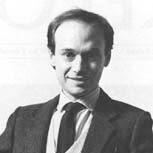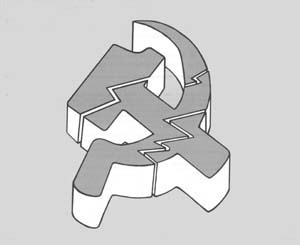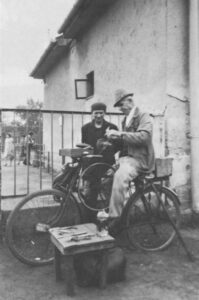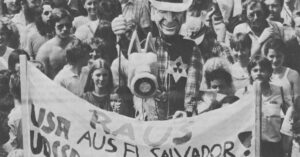Frank Lipsius
- 1982

Fellowship Title:
- The Neutralization of Europe
Fellowship Year:
- 1982

The End of the Soviet Empire
When Leonid Brezhnev praised Hungarian agriculture at the Soviet Party Congress in 1981, Hungarian farmers complained that so many delegations from the Soviet Union descended on them they could not collect their harvest. Though the Hungarians were supposed to be flattered by Brezhnev’s attention, they could not stomach the primitive peasants who mistook Hungary for the West and spent their evenings, Russian style, drinking boisterously in local bars. Efforts to improve the Soviet economy, especially ones that might do more than encourage Soviet tourism, can only increase with Yuri V. Andropov’s reform-minded leadership in the Kremlin. Already, the Soviet government has announced the formation of a Moscow “think tank” to study economic success in other Socialist countries. A recent article in the Soviet economics publication, Ekonomika sel ’ skogo khozyaistva, admiringly described Hungarian agricultural management, though without reference to private plots and personal income. The Russians are not told that in Hungary the farmers have the reputation of driving all the domestic Mercedes that do not belong to the government. So while the Russians know

Hungary’s Quiet Revolution
BUDAPEST–Young people in their Hungarian-made Levi-Strauss jeans move around Budapest in large packs that congregate in restaurants and bars, drinking beer, eating wholesome snacks like steak tartare, and open to anyone who wants to lean elbows with them. Parties are organized on short notice to celebrate any handy event. The hostess spends an afternoon making open-faced sandwiches out of salami and pickles, egg and paprika, or cream cheese and spices. Later, everyone will contribute for the wine, beer and food. The music will be on a tape or cassette taken from the radio or friends’ records. The room is dark. People sit around the periphery on beds, chairs, the floor. Brave ones will get up and dance. Those sitting have plenty to talk about, as Hungary undergoes an economic revolution that is reaching down to touch anyone who wants it to. The economic revolution is anti-Communist in everything but name: it believes in private enterprise, contested elections and consumer democracy. It eschews central planning, fixed prices and a monopoly of power for the Communist Party.

Back In The USSR
MOSCOW–At the time of his death in early November, Leonid Brezhnev was being offered a hero’s farewell if he would step down willingly and bring Communist Party politics one step closer to stability. That a smooth transition to party secretary by Yuri Andropov occurred even without Brezhnev’s retirement indicates a prior deal and a dramatic advance. The jockeying for the Brezhnev succession began in earnest in January, 1981 with the death of Mikhail Suslov, the party’s Stalinist conscience. Konstantin Chernenko, a Brezhnev crony, initially inherited Suslov’s mantle as the Communist Party’s chief ideologist and keeper of the faith when he stood next to Brezhnev at Suslov’s memorial service and then next to Defense Minister Dmitrii Ustinov at May Day ceremonies in Red square. Chernenko read Brezhnev’s message to a conference of Party officials in the armed forces and he took over ideological functions, including an urgent effort to put the Party back in touch with grassroots public opinion in the provinces in order, so the leaders assume, to prevent a Poland from happening in Russia.

Playing Cat and Mouse with the Soviet Bear
EAST BERLIN–Hunched over an ashtray in his comfortable living room in the northern suburbs of East Berlin, Reverend Reiner Eppelmann looks like nothing so much as a youthful version of Lenin, complete with penetrating eyes, balding pate and goatee. Rev. Reiner Eppelmann in his East Berlin living room (Photo by Nancy Lisagor) He speaks softly but to the point, aware that his short “Berlin Appeal” which called for the removal of foreign troops and arms from both East and West Germany had focused world attention on him. The appeal, written as an open letter early this year, got the East German peace movement underway. Unlike Lenin, however, Rev. Eppelmann disclaims any revolutionary intentions other than helping his nation abide by its avowed commitment to peace. He admits to a “naive belief” that the constitution of his government allows him to speak his mind and encourages him to communicate with the country’s leaders when he thinks they can use his counsel in the pursuit of their peaceful intentions. “I believe that the government is sincere in
